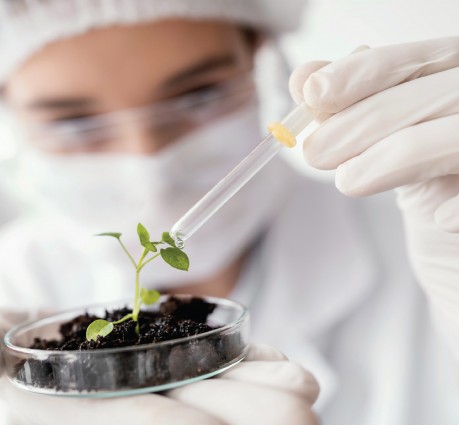Ph.D. is an UGC-approved 3-year full-time Ph.D. programme. This Ph.D. programme at Rabindranath Tagore University aims to offer significant flexibility and diversity for students. This programme allows students to study one or more Plant Protection areas of their interest. A doctoral degree will usually get you a better job with a higher income, more opportunities for growth, more responsibility, and increased reliance. The Doctor of Philosophy programme in Plant Pathology lasts Three years, following which applicants have numerous further choices in organisations, including Teaching and research studies. The programme emphasises research and laboratory work, and students are expected to conduct independent research, present their findings in scientific publications and conferences, and defend their research in a doctoral dissertation.
Duration of programme
Level of Study

Pathogens, Management, Identification, Epidemiology, and Aetiology
Plant Pathology, its Ethics, Safety, and Practise
Plant Pathology and Agritech Innovations
Pesticide Impact, Crop Protection, and Disease Organisms
PEO 18: Enhanced organisational skills in terms of time management, good laboratory practises, safety, and planning a specific programme of research
Candidates should have a Master's degree in a relevant field, such as plant pathology, Agriculture, Botany, or Biotechnology, with a minimum of 55% marks.
GEN.-55% ST, SC, OBC-55%